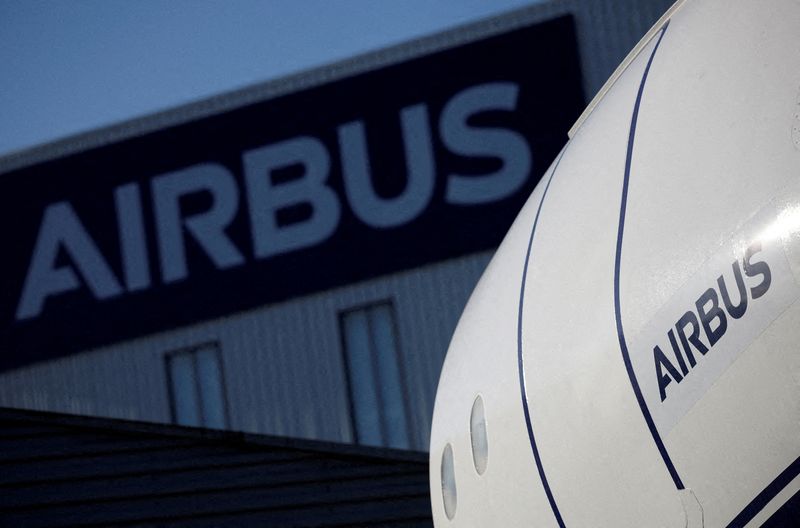By Tim Hepher
PARIS (Reuters) -Airbus revised up its forecast for airplane demand over the next 20 years on Thursday, telling investors and suppliers the air transport industry was expected to ride out the current wave of trade tensions.
The European planemaker said it expected the industry it and its U.S. rival Boeing dominate to deliver 43,420 commercial jets between 2025 and 2044, an increase of 2% from its previous rolling 20-year forecast issued a year ago.
That includes 42,450 passenger jets, up 2% from the previous forecast, and 970 factory-built freighters, up 3%.
Airbus stuck to its previous projection that air traffic would grow on average by 3.6% a year, despite chopping half a percentage point off its forecast for annual growth in trade to 2.6% and shaving its projection for global GDP growth slightly to 2.5%.
“There is certainly some turbulence thanks to the recent geopolitical and trade situation,” Antonio Da Costa, vice president for market analysis and forecast, told reporters.
“It is still very early days… nevertheless the early signals are giving us some level of hope.”
The aerospace industry has been roiled by U.S. tariffs introduced by U.S. President Donald Trump and the prospect of reprisals by the European Union, as well as wild swings in punitive duties exchanged between the U.S. and China.
U.S. and Chinese officials agreed on Tuesday on ways to restore a trade truce and roll back duelling restrictions.
Airbus officials said the latest forecasts assume that base tariffs of 10% imposed by the Trump administration on most imports would stay in place for a while, contrasting this with the deeper disruption threatened by larger punitive tariffs.
Air transport, which is closely tied to the economy and rising numbers of middle classes with disposable incomes, has frequently proven itself resilient to shocks, Da Costa said.
Airbus CEO Guillaume Faury has called for a return to tariff-free trading for aerospace, joining a chorus of U.S. industry leaders in warning of damage from a tariff war.
Airbus raised its demand forecast for single-aisle planes like the A320neo family and competing 737 MAX, which account for four out of every five deliveries, by 2%. It expects 34,250 of them over 20 years, of which 56% would be additional capacity.
Airbus revised up its forecasts for wide-body passenger jet deliveries by 3% to 8,200 planes. That part of the market for long-haul jets has seen growing demand led by Gulf carriers.
(Reporting by Tim Hepher; Editing by Emelia Sithole-Matarise)






